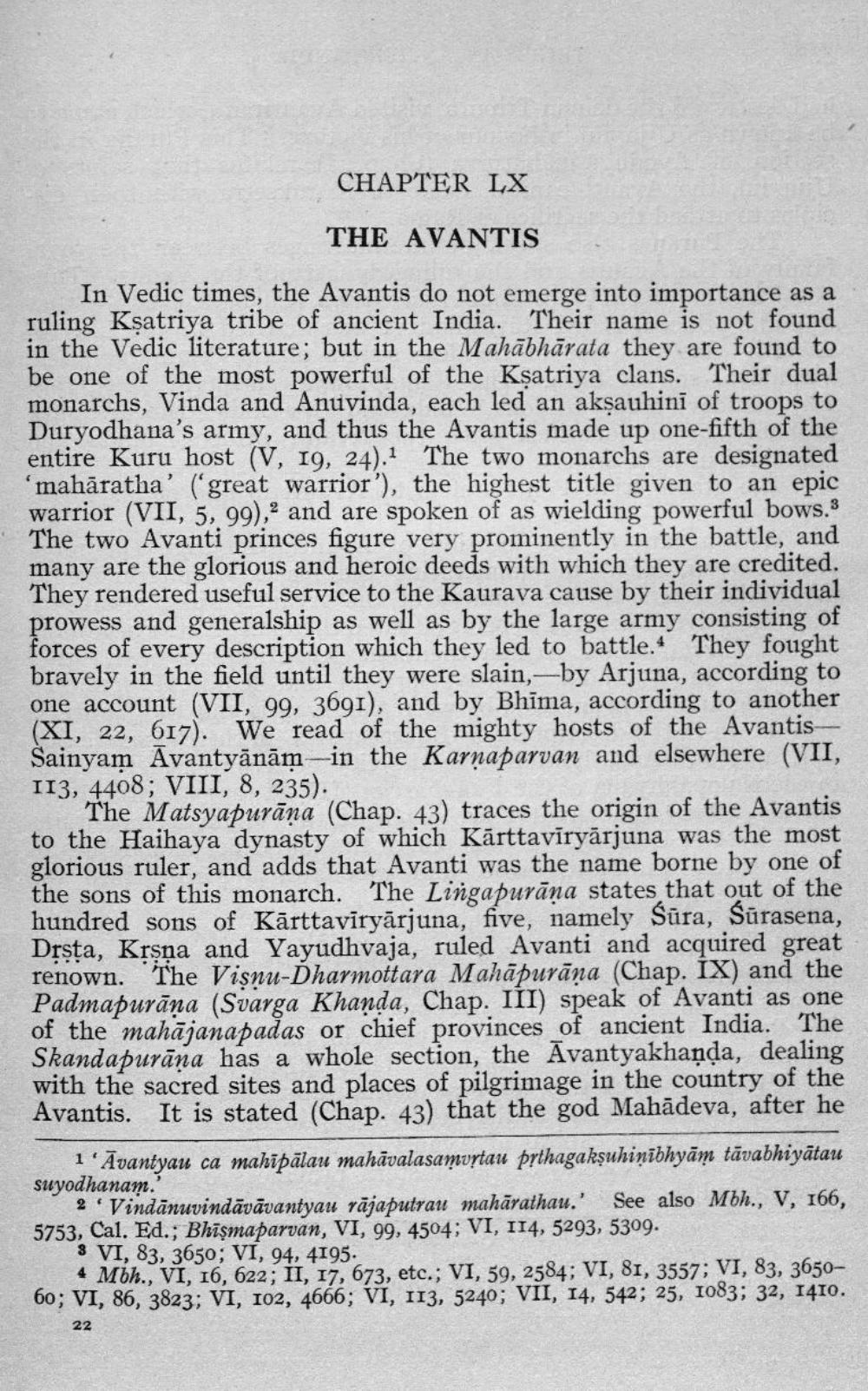________________
CHAPTER LX
THE AVANTIS
In Vedic times, the Avantis do not emerge into importance as a ruling Ksatriya tribe of ancient India. Their name is not found in the Vedic literature; but in the Mahābhārata they are found to be one of the most powerful of the Ksatriya clans. Their dual monarchs, Vinda and Anuvinda, each led an akşauhinī of troops to Duryodhana's army, and thus the Avantis made up one-fifth of the entire Kuru host (V, 19, 24). The two monarchs are designated 'mahāratha' ('great warrior'), the highest title given to an epic warrior (VII, 5, 99), and are spoken of as wielding powerful bows.3 The two Avanti princes figure very prominently in the battle, and many are the glorious and heroic deeds with which they are credited.
They rendered useful service to the Kaurava cause by their individual prowess and generalship as well as by the large army consisting of forces of every description which they led to battle. They fought bravely in the field until they were slain,-by Arjuna, according to one account (VII, 99, 3691), and by Bhīma, according to another (XI, 22, 617). We read of the mighty hosts of the Avantis - Sainyam Avantyānām-in the Karnaparvan and elsewhere (VII, 113, 4408; VIII, 8, 235).
The Matsyapurāna (Chap. 43) traces the origin of the Avantis to the Haihaya dynasty of which Kārttavīryārjuna was the most glorious ruler, and adds that Ayanti was the name borne by one of the sons of this monarch. The Lingapurāņa states that out of the hundred sons of Kārttavīryārjuna, five, namely Sūra, Śūrasena, Dțsta, Krşņa and Yayudhvaja, ruled Avanti and acquired great renown. The Vişnu-Dharmottara Mahāpurāņa (Chap. IX) and the Padmapurāņa (Svarga Khanda, Chap. III) speak of Avanti as one of the mahājanapadas or chief provinces of ancient India. The Skandapurāna has a whole section, the Āvantyakhanda, dealing with the sacred sites and places of pilgrimage in the country of the Avantis. It is stated (Chap. 43) that the god Mahādeva, after he
1 'Āvantyau ca mahīpālau mahāvalasamurtau pythagakṣuhiņībhyām tāvabhiyātau suyodhanam.
2 'Vindānuvindāvāvantyau rājaputrau mahārathau.' See also Mbh., V, 166, 5753, Cal. Ed.; Bhīşmaparvan, VI, 99, 4504; VI, 114, 5293, 5309.
8 VI, 83, 3650; VI, 94, 4195.
4 Mbh., VI, 16, 622; II, 17, 673, etc.; VI, 59, 2584; VI, 81, 3557; VI, 83, 365060; VI, 86, 3823; VI, 102, 4666; VI, 113, 5240; VII, 14, 542; 25, 1083; 32, 1410.
22




